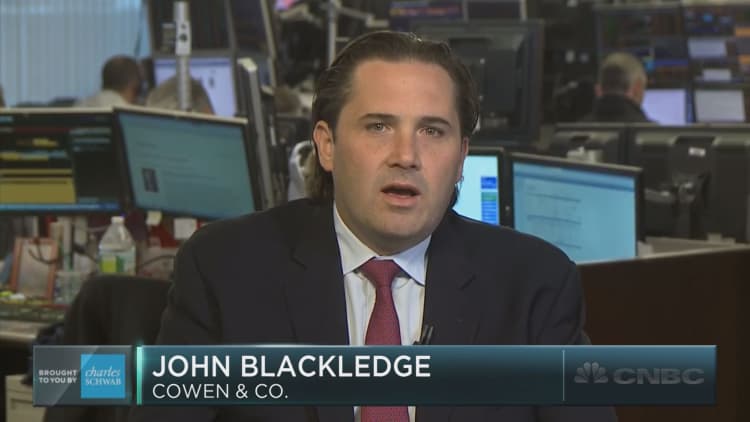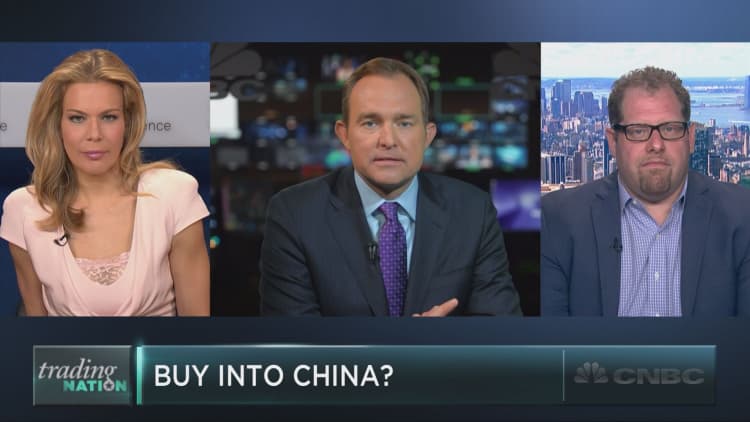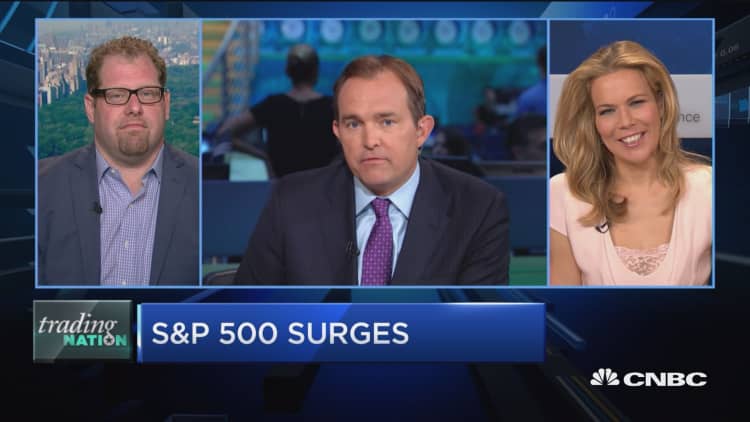


The music industry has fallen flat for the past decade, but one expert says it's about to hit a high note thanks to today's consumer landscape.
A report released by Cowen and Co. on Wednesday indicated that today's streaming services, typically thought of as a nail in the coffin for the long-struggling music industry, are actually going to lead the charge. According to Cowen internet industry analyst John Blackledge, the newest on-demand and ad-supported services are going to lead the music industry's comeback, with estimates that these services could lift the music industry to a valuation of $8.7 billion in the next five years.
"A lot of people do not pay for music in the country," he said Wednesday on CNBC's "Trading Nation." "Per the survey, 32 percent of people paid for music, that was either for a digital download, or physical or on-demand streaming. Our call on this report is that the music industry is really rising again, it's getting its groove back."
This is especially true as big tech giants see music as having great strategic value, giving users a way to interact with and find an entry point into their respective platforms.
"The strategic value of music is often greater than revenue contribution," he said. "What I mean by that is for Alphabet, for Apple, for Amazon and their respective platforms, Youtube, Apple Music, Prime Music, they don't really move the needle per se for revenues."
"They do drive the consumer touch point to their platforms, which kind of enhance their brands and also lead to the consumers doing other things in their ecosystems," Blackledge said.
Apple's iTunes revolutionized the music industry back when it was released in the early 2000s, encouraging a move for music on a digital platform as Seattle-based Rhapsody became the first music streaming service. Over the next decade, now-staple names like Pandora and Spotify also emerged, offering their own platforms as physical music sales struggled to keep up with the increasingly online market.
But now with other big tech companies like Alphabet and Amazon in the game, the industry has given way to huge on-demand and ad-supported platforms that Blackledge believes will drive a market that's more or less up for grabs.
"It's really going to be competitive," he said. "You have Apple Music, Pandora's doing their on-demand platform later this year [and] Prime Music had really surprisingly high engagement. Then on the ad-supported side, I would say definitely YouTube and Pandora [are big]."
"I don't think it's a zero sum game per se, there will be multiple platforms depending on if people pay or if they don't want to pay, there are very good ad-supported services available," he added.
Among the top contenders, Blackledge sees Pandora as a top competitor from a stock perspective, with data suggesting that a fifth of its 80 million users would pay for the company's upcoming on-demand streaming service. Spotify will still reign supreme, with Cowen and Co. predicting that the service will rise to 80 million subscribers from its current 30 million in five years.
And of course, eyes are also on Alphabet-owned YouTube as the global video-sharing website trails only terrestrial radio as the leading source of music in the U.S., but is the No. 1 source for millennials.





